Role & Potential of AI in Agriculture
Table Of Content
Published Date :
03 Jun 2025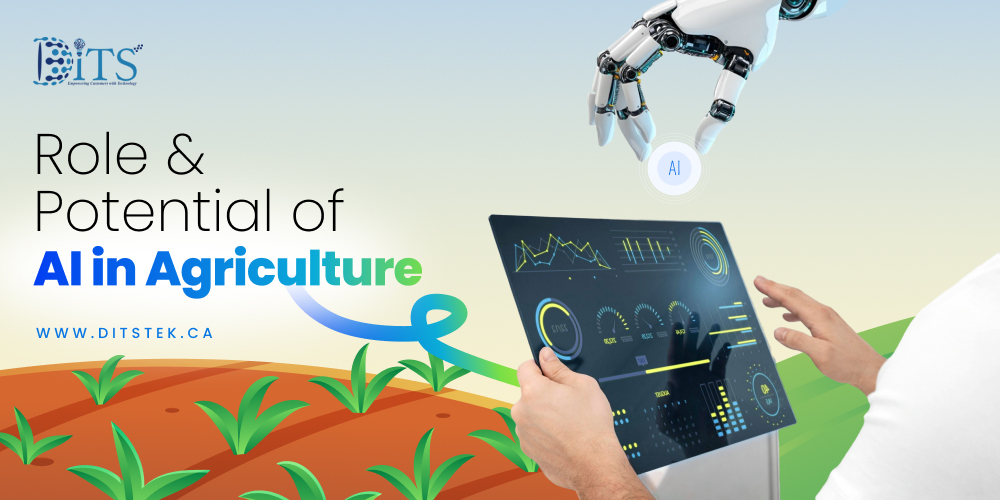
With an expected rise in the global population, there will be a need for 70 percent more food by the mid of this century. This growing demand for food is a great challenge, especially under the current resource scarcity scenario and changing climatic conditions. Other conditions like water management and sustainable land use are also becoming critical, which adds to the challenge.
Fortunately, the use of artificial intelligence in agriculture can be a game-changer for the global food crisis. It helps farmers optimize resource use, reduce environmental impact, and make data-driven decisions by analyzing information from many sources, ultimately transforming our food systems.
This blog highlights the role of AI in agriculture, key applications, and benefits.
Role of AI in Agriculture
Artificial Intelligence has influenced every industry, and agriculture is no exception. It helps farmers adopt smart farming practices to get improved yields every season and minimize losses due to unfavorable conditions like bad climate that hampers the growth of crops. AI has helped farmers and agricultural businesses a lot to meet the growing demands of the local and global population.
The use of AI is not limited to the cultivation of crops, but it's also being used in running the food supply chain effectively. AI uses various technologies such as predictive analytics and satellite imaging to improve agricultural operations and help farmers respond to pests, climatic conditions, and meet the market demands with confidence.
Leverage AI for Data-Driven Farming Decisions!
DITS enables you to make data-driven decisions that enhance crop health, predict market trends, and improve overall farm management.
Key Applications of Artificial Intelligence in Agriculture
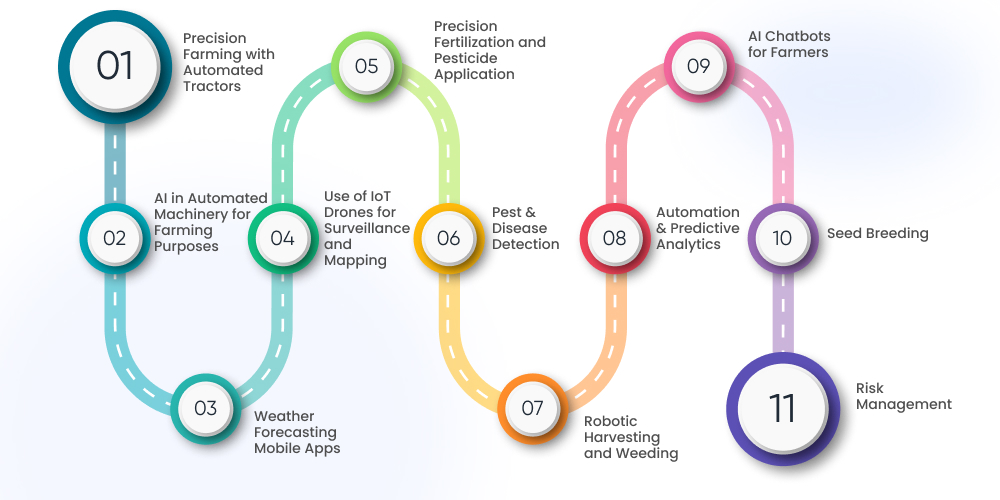
Now that we understand the role of AI in agriculture, let’s explore some key applications where it’s helping farmers and agri-businesses boost yields, reduce losses, and better meet market demand.
Precision Farming with Automated Tractors
Artificial intelligence-driven automated tractors make farming more intelligent and efficient. The tractors can operate with pin-point accuracy, which in turn helps in limiting soil degradation and ensures better growth of crops. Real-time data from sensors helps farmers make instant decisions related to watering, planting, or general fieldwork, thus decreasing labor, cutting cost, and allowing crops to grow well, in other words, a boon to sustainability and profitability.
AI in Automated Machinery for Farming Purposes
AI has certainly advanced modern farming machinery with the help of computer vision. It can detect types of soil problems, keep track of plant health, and evaluate if the crops are ready to be harvested. Machine learning algorithms further help with water conservation in irrigation systems. Hence, this allows the farmers to manage their resources efficiently, minimize labor costs, and ensure their crops grow well with less impact on the environment.
Weather Forecasting Mobile Apps
Weather forecasting mobile apps powered by AI has revolutionized farming for farmers and agriculture businesses. With accurate forecasts given on mobile apps about real-time data, satellite images, and past data trends, farmers can plan watering, pest control, and harvesting with a sense of certainty.
Weather forecasting mobile apps equipped with AI deliver this data on smartphones, using which they can adapt to any sudden weather changes, cut crop losses, and aid in yield enhancement towards a sustainable future.
Use of IoT Drones for Surveillance and Mapping
Drones use IoT devices to capture images and monitor crop and soil health. Equipped with IoT cameras and sensors, look out for disease symptoms, problems caused by pests, and growth patterns. AI tools process drone images to map soil quality, moisture, and crop health to manage large farms. Drones save time and cut costs, while also granting farmers new insights to improve precision farming.
Precision Fertilization and Pesticide Application
There goes AI into precision fertilization and pesticide application! Analyzing soil and crop data, these smart systems pinpoint exactly how much nutrients and pesticides a crop needs. They supply the same amount to crops, meaning optimal utilization without waste. Precision fertilization helps produce healthy crops, high yields, and sustainable farming.
Pest & Disease Detection
Artificial intelligence is vital in detecting pests and plant diseases in agriculture. AI tools analyze data provided from sensors, satellite images, and climate information to detect plant diseases and pest infestations quickly. Detecting these things early helps farmers prevent crop damage and protect their yield.
AI tools can analyze data from sensors and satellites to identify patterns and predict future outbreaks. This allows farmers and agricultural firms to detect pest infestations and crop diseases early, thereby reducing the chances of loss of yield and adapting to sustainable practices.
Robotic Harvesting and Weeding
Such machines increase work efficiency on the farm. Equipped with computer vision and AI, they pave the way for the proper identification of fruits and vegetables that are ripe and ready for harvesting. While these machines deal with weeding with minimal herbicide use, saving money and increasing crop health, robotic setups combine automation and information to grow produce more with less environmental impact and manual labor.
Automation & Predictive Analytics
Automation and AI are causing a revolution in the farming supply chain. Up-to-the-minute data and predictive analytics enable farmers to predict yields, demand, and market needs. This clever planning helps to cut down on waste, lower costs, and make sure food reaches the market. Automated systems cut down on mistakes, boost quality control, and make the agricultural sector more sustainable across the board.
AI Chatbots for Farmers
AI chatbots are vital in helping farmers and agriculture firms manage crops. Chatbots offer personalized advice on the proper planting time, fertilizer application, and irrigation schedules based on crop requirements and local climatic conditions. In addition, chatbots can provide weather forecasts to help farmers manage risks associated with weather changes. Some chatbots also analyze market data to predict demand for specific crops to help farmers make decisions on planting and harvesting.
Seed Breeding
Compartments of plant growth information make use of AI to create crops that are disease-resistant and better suited for harsh climates. AI could be enhanced through plant varieties to associate appropriate cultivars with thermal regulation of biotics, making them the safest hybrid.
Yes, hybridization is a part of agriculture, but knowledge of the genomics of a seed can provide rapidity for breeders and reduce undesirable results.
Risk Management
Farmers can manage some of the risk of crop loss through many different types of forecasting, predictive analytics, etc. Agriculture businesses can utilize artificial intelligence (AI) to provide farmers with assessments of the quality of their agricultural products to reduce food waste.
For example, there are applications that use AI and computer vision algorithms that allow farmers to analyze the quality of food products, reporting not just on quality, but also ripeness and size. AI even analyzes crop defect status and calculates disease indexing rates, giving farmers who use the apps information to carry out their preventive methods before a negative event.
Future-Proof Your Business with AI-Driven Innovation!
Stay ahead in the agri-business world with AI-powered strategies that optimize everything from farming to supply chain management.
Key Benefits of AI in Agriculture
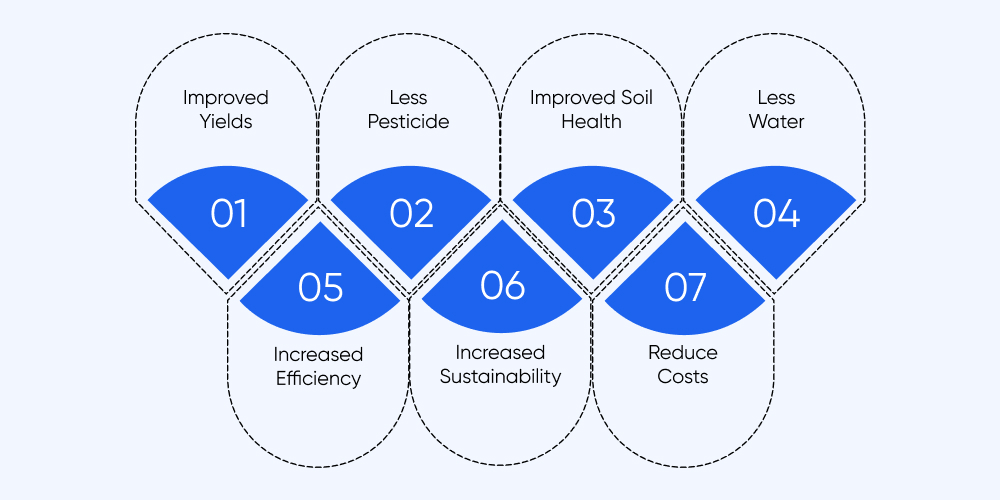
As we explained in the above section the applications of artificial intelligence in agriculture, let us now dive into the key benefits of AI that farmers can reap for better yields and crop management.
1. Improved Yields
Farmers can utilize AI-enabled programs to track data on soil health, weather, and plant growth. This data will allow farmers to make informed decisions regarding irrigation and fertilizer, which may ultimately yield higher outputs from their crops.
2. Less Pesticide
Farmers can use AI to identify pest and disease occurrence in their crops before they incur damage. This information can be utilized to make informed decisions regarding pesticide application that will ultimately allow minimizing pesticide application overall on a farm.
3. Improved Soil Health
Farmers can utilize AI-enabled programs to track data on soil moisture and nutrient levels. They can use this information to formulate decisions regarding irrigation and fertilization of crops, which may yield improved overall soil health.
4. Less Water
Farmers can utilize AI enabled programs to track data on weather patterns and plant growth. This information can be utilized to formulate decisions relating to irrigation application in order to minimize total water application utilized on the farm.
5. Increased Efficiency
Farmers may use AI-powered applications to automate farming duties, including crop monitoring and yield predictions. This automation can help to free up farmer time so that they can market and sell their farm products.
6. Increased Sustainability
Farmers can also use AI-powered applications to help monitor metrics such as energy use, water consumption, and chemical applications. This data can potentially lead to changes that make a farm's consumption more sustainable.
7. Reduce Costs
Farmers may use AI-powered applications to automate farming tasks like crop monitoring and yield predictions. They can lower labor costs while increasing efficiency and accuracy. However, you need to get the app developed by a reliable software development company like Ditstek Innovations.
Cut Costs, Boost Production with AI Solutions for Agriculture!
Save time, reduce costs, and improve production efficiency with AI. Let DITS guide your agriculture business toward smart and sustainable growth.
How DITS Help with Custom AI in Agriculture
At Ditstek Innovations, we have a team of developers who work on building AI software for farmers and agricultural businesses. We are based in Canada and understand the needs of farmers, whether it's market demand, crop yield, or protection of crops from pests and climatic conditions.
We build custom AI software for agriculture tailored to your specific needs, like higher crop yields, pest management, precision farming, or automatic surveillance. You tell us your specific requirement, and we will build the AI software for you. Not only this, we integrate the software with your existing farming equipment and offer ongoing support to ensure the solution continues to work as intended.
So, if you are running an agriculture business, and looking to develop AI software, you can contact us anytime via email or visit our website, fill the contact form, and our team will get back to you with the details.
Conclusion
Artificial intelligence is reshaping the future of the agriculture industry. It will allow a farmer to make educated decisions based on factual data, lower expenses, and work on optimizing everyday farming processes. This sector is being revolutionized with the use of AI in smart irrigation systems, precision livestock farming, and automated machinery. Farmers can get updates on climatic conditions, crop health, harvesting time, and equipment maintenance to make informed decisions for better yields year after year and fulfill the market demands.
FAQ’s
1. How does AI improve crop monitoring in agriculture?
AI uses drones, satellites, and sensors to collect real-time data with which farmers monitor crop health, detect diseases early, and forecast weather. By analyzing the gathered information, AI supports farmers in coming up with precise decisions for better yield and reduced waste.
2. How can AI reduce resource inputs in farming?
The AI systems are capable of monitoring the amount of water, fertilizer, and pesticide application based on real-time data concerning the health of the soil, the needs of the crops, and weather patterns. This results in less wastage, a reduction in cost, and maintenance of sustainable farming practices.
3. Can AI-based systems output crop yield predictions?
Yes, AI predicts crop yield by using past data, weather forecasts, and soil conditions with great accurateness. This lends to better planning by farmers, promoting resource optimization, and timely strategizing towards maximum output.
4. Will smaller-scale farmers have access to AI?
Costs of AI solutions are coming down, and hence, scalability is becoming more practical. Several AI applications cater to small-scale farmers by providing them with working tools for increased productivity, resource management, and cost reduction, all implemented within their financial means.
5. How does AI assist in pest control?
AI identifies potentially pest infestations at an early stage through image recognition technology and sensors. Having identified the trouble spots' exact location and severity, AI systems enable more focused treatments or that minimize pesticide usage, benefiting the environment.

Dinesh Thakur
21+ years of IT software development experience in different domains like Business Automation, Healthcare, Retail, Workflow automation, Transportation and logistics, Compliance, Risk Mitigation, POS, etc. Hands-on experience in dealing with overseas clients and providing them with an apt solution to their business needs.
Recent Posts
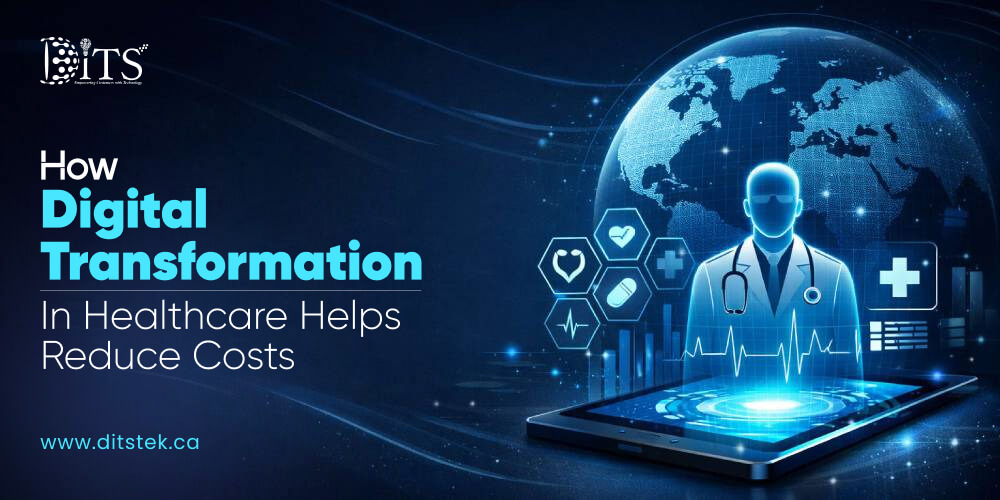
Digital transformation in healthcare streamlines operations, reduces administrative waste, strengthens revenue cycles, and enables data-driven decisions that support sustainable cost control and improved care delivery.
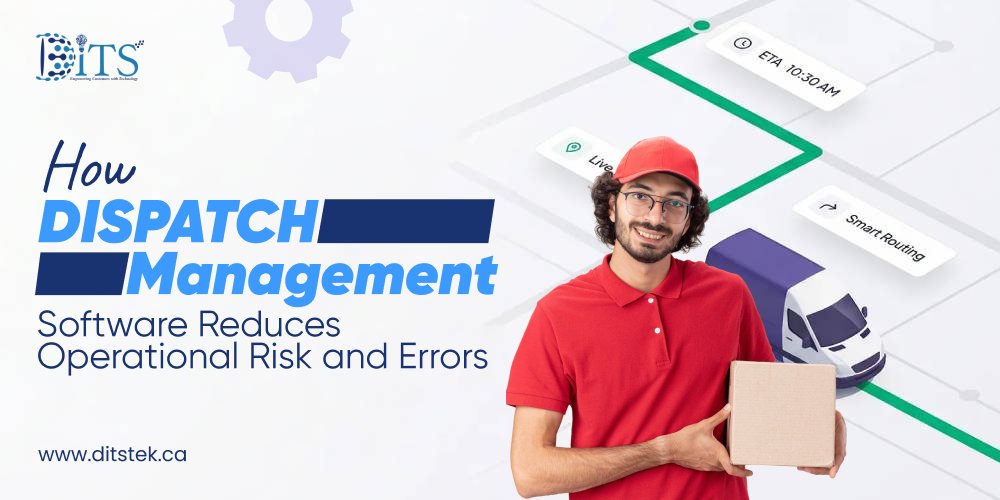
Reduce operational risks and errors by replacing manual, spreadsheet-based processes with dispatch management software.
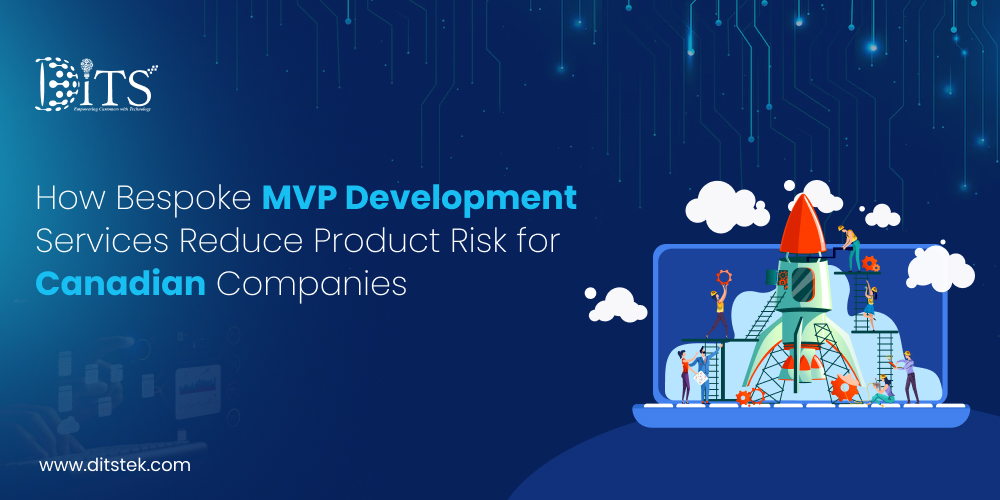
Discover how bespoke MVP development services help Canadian companies reduce product risk, validate ideas faster, and build scalable products with confidence.